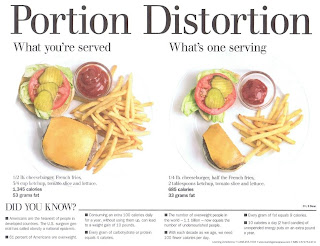We eat when we’re happy, upset, stressed, bored — you get the picture. Oftentimes, these emotional indulgences become a more frequent event leading to weight gain. Use these 5 tactics to gain control.
Do you find yourself having an overwhelming desire to munch even when you’re not truly hungry? It could be that you’re bored or stressed—this type of emotional eating is a behavior we teach ourselves over many years— it takes time and effort to really gain control of it. The next time you get the urge to dig in, ask yourself “What I am really feeling”?
#2: Keep a Food Journal
Many people plop down after a long day and become a couch potato for the rest of the night. Munchies soon follow—an endless bag of chips or pint of mint chocolate chip ice cream. Being able to pinpoint the exact times you indulge and what you indulge in is imperative. Keep a food journal for several weeks and you’ll realize your patterns. Take it a step further and rate your hunger from 1-10 (10 being extremely hungry)—and you’ll get an even better picture of when you’re mindlessly munching.
#3: Distract Yourself
Oftentimes we use food to provide comfort after a fight with your spouse or deal with a crabby boss. You may also find yourself so elated about your new promotion, that you “deserve” a huge slice ofchocolate cake a la mode. Curb emotional cravings by finding a non-food related distraction instead. Take a warm bubble bath, call a friend, read a magazine or take up knitting. A 2009 study in the Journal of Eating and Weight Disorders found knitting helped participants lower their anxiety when it came to food.
Oftentimes we use food to provide comfort after a fight with your spouse or deal with a crabby boss. You may also find yourself so elated about your new promotion, that you “deserve” a huge slice of
#4: Get Your Zzz’s
Lack of sleep increases your cortisol levels, a hormone that goes up when you’re stressed or anxious. Once your emotions are in full swing, mindless emotional eating won’t be far behind. A recent study published in the International Journal of Obesity found that folks who slept between 6 to 8 hours had lower stress levels and were more likely to achieve theirweight loss goal. So turn off your favorite TV program (DVR it!) and step away from all electronic devices— they’ll all be there in the morning.
Lack of sleep increases your cortisol levels, a hormone that goes up when you’re stressed or anxious. Once your emotions are in full swing, mindless emotional eating won’t be far behind. A recent study published in the International Journal of Obesity found that folks who slept between 6 to 8 hours had lower stress levels and were more likely to achieve their
#5: Exercise Regularly
A 2012 study in the journal Appetite found that folks who exercised while at work (i.e. took a brisk 15 minute walk during a break) ate less chocolate than those who didn’t exercise at all. Regular exercise has been found to help decrease stress and put you in a good frame of mind. A positive attitude is sometimes all you need to help make healthier decisions.
TELL US: How do you overcome emotional eating?A 2012 study in the journal Appetite found that folks who exercised while at work (i.e. took a brisk 15 minute walk during a break) ate less chocolate than those who didn’t exercise at all. Regular exercise has been found to help decrease stress and put you in a good frame of mind. A positive attitude is sometimes all you need to help make healthier decisions.























.jpg)





